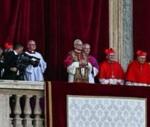You are here
Camp David summit to show Obama Gulf’s generational shift
By Reuters - May 12,2015 - Last updated at May 12,2015
RIYADH/DUBAI — The new generation of Gulf Arab leaders meeting US President Barack Obama on Wednesday appear more assertive than their fathers, want a range of alliances instead of dependence on Washington, and may be readier to say “no” to their main ally.
Saudi Arabia's King Salman, 79, caused a stir this week when he said he would send his two heirs to the United States for the summit instead, raising fears about Gulf anger over US policy and reluctance to bless its plans for an Iran nuclear deal.
Kuwait's 85-year-old emir is the only member of the old guard of Gulf Cooperation Council (GCC) leaders attending Camp David, although Qatar's emir, who has ruled for less than two years, will also be there.
The four others are sending younger deputies in part because older rulers are either too infirm to travel or may be too unconvinced by Obama's policies to see the visit as worthwhile, but their presence may still signify a shift to a new phase in US-Gulf ties.
The region's rulers were dismayed by Obama's perceived support for Arab Spring uprisings in 2011 and felt he had let them down by not pushing Israel harder to make peace, and by not bombing Syria after a poison gas attack in 2013.
"The trust gap remains with this administration. Will it deliver on its promises? It's not just the Saudis who feel this way — it's the Emirates, Qatar, Bahrain," said Mustafa Alani, an Iraqi security analyst close to Riyadh's interior ministry.
Educated in a world informed as much by modern media as traditional values, and in a region polarised along sectarian lines rather than those of the Cold War, the Gulf’s new leaders look subtly different from those that came before.
While Saudi Arabia’s Crown Prince Mohammed Bin Nayef, 55, and the UAE Crown Prince Sheikh Mohammed Bin Zayed Al Nahyan, 54, have been familiar figures to Washington policy makers for years, however, two others are less known.
The Saudi Deputy Crown Prince, Mohammed Bin Salman, 30, and Qatar’s Emir Sheikh Tamim Bin Hamad Al Thani, 34, are relative newcomers to the international scene whose approach to major international issues is still subject to debate.
Bahrain’s Crown Prince Salman Bin Hamad Bin Isa Al Khalifa, 45, is familiar to Western countries as a relative moderate in a ruling family where more traditional figures with hawkish views towards Iran and internal security still dominate.
Rising stars
Theodore Karasik, a Dubai-based geopolitical analyst, said it was important for Obama to spend time with young leaders who would wield influence for years to come, and who would be the interlocutors for his successor as president.
“It’s a reset of relations in advance of the re-entry of the Islamic Republic (of Iran) into the regional and international scene. Even if there are disagreements, this meeting will establish a new foundation of the Gulf-US relationship, in a new era,” he said.
Mohammed Bin Nayef, has worked closely with the US authorities as Saudi security chief to destroy an Al Qaeda network in the kingdom a decade ago.
Fast-tracked into the crown prince position last month, he will now succeed six of his uncles to become the first of Ibn Saud’s grandsons to rule Saudi Arabia, and is already in charge of security policy, and the prominent voice on political issues.
He is described by some diplomats in the region as having a mentor relationship to his young cousin Mohammed Bin Salman, the second-in-line to rule, who is both defence minister and in charge of economic and development policy in the kingdom.
The two cousins have been the public face of Saudi Arabia’s campaign in Yemen since it marshalled an Arab coalition for strikes against rebels allied to Iran on March 26, indicating to some that they favour a far more aggressive approach to Tehran.
By building a wide Muslim coalition — albeit one with few active members and logistically dependent on Western allies — the pair also signalled a shift towards expanding Riyadh’s security architecture to include regional powers.
Shared goals
The UAE’s Sheikh Mohammed, educated at Britain’s Sandhurst military academy, is seen as a close ally of Washington.
However, since taking over the day-to-day running of the UAE since his half-brother Sheikh Khalifa took ill, he has also worked to strengthen its regional role, sending troops to Afghanistan and warplanes on sorties in Syria, Libya and Yemen.
Sheikh Tamim of Qatar has also had considerable interaction with Western diplomats and leaders since before he took over from his father, Sheikh Hamad, who abdicated power two years ago. However, diplomats in the Gulf say it is still unclear what changes he will make from his father’s policies.
Under Sheikh Hamad, Qatar parlayed its immense natural gas revenue into a significant international role, rivalling Riyadh in regional diplomacy and aligning with the Muslim Brotherhood, much to its Gulf neighbours’ chagrin.
Sheikh Tamim has barely altered that path, but after a big row with Saudi Arabia and the UAE over its Islamist links last year, Qatar is now working closely with Riyadh to strengthen Syria’s opposition against President Bashar Assad.
That relationship, which combines the diplomatic and financial clout of Gulf states with the military power of Muslim Turkey to accomplish shared goals without relying on the United States, shows where many in the region think things are heading.
Related Articles
BERLIN — Chancellor Olaf Scholz will visit Saudi Arabia and meet Saudi Crown Prince Mohammed Bin Salman as part of a Gulf trip, his spokesma
DOHA — The United Arab Emirates' president on Monday began his first visit to Qatar since the end of a nearly four-year regional blockade th
Qatar's ruler was in Saudi Arabia on Tuesday for talks with the newly enthroned King Salman about the deteriorating security situation in Yemen and relations with Egypt.














